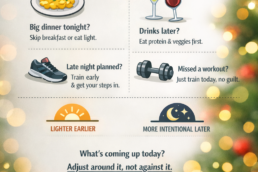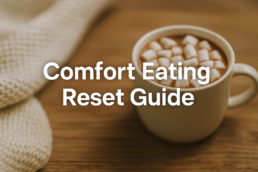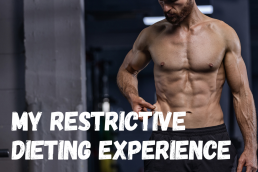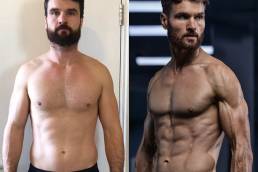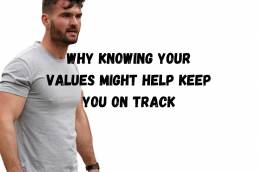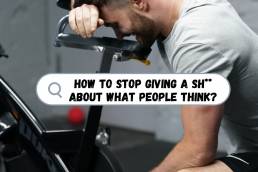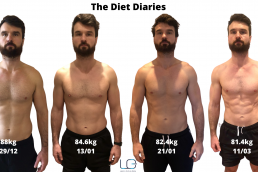17th December 2025
Your Holiday Survival Guide
Your Holiday Survival Guide
The holidays are busy.
Social plans multiply.
Food is everywhere.
This is usually where routines slip.
Training drops off.
Meals become reactive.
People write the whole period off.
“I’ll deal with it in January.”
“I’ll reset in the new year.”
“It’s only a few weeks.”
That thinking feels harmless in the moment.
Ideally, we want to avoid this way of thinking.
The aim isn’t perfection.
It’s control.
It’s about staying steady during the messiest weeks of the year so January feels like a continuation, not a rescue mission.
You don’t need to do everything.
You just need to keep doing something.
If anything, we want to be imperfectly consistent.
These six strategies are designed for real life, not ideal conditions.
- Eat Slowly. Stop at “Satisfied”
This is the simplest and most effective tool.
When you slow down, two things happen.
First, your body catches up.
It takes around 15 to 20 minutes for fullness signals to reach your brain.
If you eat fast, you overshoot.
Second, enjoyment increases.
You taste your food.
You feel content sooner.
You stop chasing that “too full” feeling.
This means you can enjoy festive meals without guilt or regret.
Try this at your next meal:
Put your fork down between bites.
Take a breath before going back in.
Finish feeling comfortable, not stuffed.
Ask yourself.
Did I enjoy that?
Or did I rush it?
- Short Workouts Still Count
December doesn’t need hours spent exercising, but you do need to do something.
Consistency matters more than intensity (one of my favourite quotes).
A few short workouts each week will:
Maintain strength
Protect habits
Support energy and mood
Even 20 to 30 minutes is better than the workout you didn’t do.
Let’s not get into the habit of “if I can’t do it all, then I won’t bother” or “I’ll wait for when I can.”
Remember, we do this more for our own mental wellbeing than anything.
Ask yourself.
What’s the minimum you can do between now and the new year and still feel like yourself?
Momentum is everything.
And it doesn’t take much to keep things ticking over.
- Plan for Eating on the Go
December is a killer for routines.
More travel.
More late nights.
More of that feeling of having no control over what you’re eating because you’re out or other people are cooking.
We might not always have control of what’s in front of us, but we always have control over what we put into our bodies.
That’s where decisions slip, because we sometimes tell ourselves we don’t have control when we do.
If you are away from home, think forwards by planning backwards.
Examples that work:
High-protein snacks or shakes in your bag
Simple, repeatable meals in the fridge
Go-to supermarket options you already trust
This stops the “I was starving, so I grabbed whatever” spiral.
You don’t need perfect meals.
You need repeatable and predictable ones.
Something we work on with all our clients.
Ask yourself.
What’s my default option when time is tight?
If you don’t know this, you should.
Get one or two options ready and practise the habit of turning to them first.
- Use Protein Shakes Strategically
Letting yourself get overly hungry is one of the fastest ways to lose control.
That’s when overeating happens.
That’s when drinks turn into snacks.
That’s when choices become reactive.
A protein shake acts as a buffer.
High protein.
Quick to consume.
Easy when life is chaotic.
Have one earlier in the day.
Between events.
Or before a big meal if you’ve barely eaten.
You’ll arrive calmer.
Less reactive.
More in control.
Ask yourself.
Where would one shake make today easier?
- Use Portion Awareness, Not Tracking
Tracking calories over Christmas rarely works.
Meals are mixed.
Portions are unclear.
Accuracy drops.
Instead, use portion awareness.
At main meals, aim for:
A solid protein portion
Some vegetables
A sensible amount of carbs or fats
Then enjoy the extras intentionally.
You don’t need restriction.
You need balance.
One heavier meal doesn’t matter.
Several days of mindless eating does.
Check in with yourself.
Is this a conscious choice?
Or am I on autopilot?
- Eat More Vegetables Than You Think You Need
Vegetables do a lot of work this time of year.
They support:
Fullness
Digestion
Energy
Mood
They make rich meals easier to handle.
The key is preparation.
Roast them.
Season them properly.
Use oils, herbs, and flavour.
They don’t need to be boring to be effective.
Anchor meals around them when you can.
Ask yourself.
Have I added anything today that helps me feel better?
The Big Picture
The holidays don’t ruin progress.
Abandoning structure does.
You don’t need extremes.
You need anchors.
Move your body regularly.
Eat with awareness.
Fuel yourself before hunger takes over.
If you can stay steady in December,
you can stay consistent any time of year.
3rd September 2025
Comfort Eating Reset Guide for Busy Parents & Professionals
For the parents running on fumes. For the professionals battling long hours and constant stress.
If you find yourself snacking when you are not hungry, eating out of habit, or reaching for food at the end of a long day, this guide is for you.
This is not about counting calories. It is about resetting your habits, managing your environment, and building strategies to handle stress and cravings better.
1. Why Comfort Eating Happens
Comfort eating is not about hunger. It is about emotion.
Think of a long workday where the emails never stop, the kids are shouting in the background, and your energy is gone. The moment the house is quiet, you reach for food. Not because your body needs it, but because you need relief.
You eat to change how you feel. To cope with stress, boredom, anxiety, loneliness, or fatigue. It is a learned response. And it works temporarily.
Foods like chocolate, crisps, and biscuits light up the brain’s reward system. You get a quick dopamine hit and feel better for a moment. The more often you repeat that loop, the stronger it becomes.
Science backs this up. Stress triggers cortisol, your main stress hormone, which pushes your brain to seek quick energy. Ghrelin rises, your hunger hormone, even if you have eaten enough.
Lack of sleep blunts leptin, the signal that tells you you are full. Combine all of this, and cravings become harder to resist — not because you are weak, but because your biology is pushing you toward them.
2. Day-to-Day Tools to Regain Control
Small daily habits matter more than big one-off efforts.
To regain control, start with consistency.
Eat at regular times so you are not going long stretches without food, and build balanced meals that include protein, carbs, healthy fats, and fibre.
Make protein a focus at every meal to stay fuller for longer.
Stay hydrated, as thirst can easily be mistaken for hunger.
Walk daily, even for 10 to 15 minutes, to lower stress and reset your mood.
Prioritise your sleep, since poor rest increases cravings and weakens your decision making.
Audit your environment by keeping trigger foods out of sight and making healthier options easier to grab.
Plan ahead for high stress times like evenings after work by having a reset routine ready, whether that is herbal tea, a short walk, or reaching out to a friend or your coach.
Finally, practice a mindful pause before eating. Even 30 seconds of reflection can help you recognise whether you are truly hungry or just seeking comfort. Simple, predictable routines reduce chaos and give you more control.
3. In-the-Moment Strategies
The toughest time to stop is when your hand is already in the bag.
Here is how to break that loop:
Pause and ask yourself if you are actually hungry or just stressed, tired, or bored. Surf the urge.
Most cravings fade within 20 to 30 minutes. Move your body. Stretch, step outside, or walk around. Create space. Even 60 seconds of pausing can change the outcome.
Think of this as a step-by-step reset you can run in real time:
-
Notice the pattern: What is it that tends to trigger stress eating for you? Once you know the trigger, you can find a solution.
-
Delay: Tell yourself, “If I still want it in 10 minutes, I can have it.” Often the urge passes.
-
Replace: Swap the food cupboard or pantry with another ritual — a cup of tea, journaling or a quick walk.
-
Reframe: Eating will not change the argument you might have had today or the stress from work. But choosing a different response builds self-trust and gives you control. That is essential to build.
-
Action: If you can, take action on the thing that is stressing you. Sometimes 30 minutes of work is better than avoiding it and snacking while the stress builds.
It is not about never turning to food. It is about making sure it is not the only coping mechanism. Each time you break the loop, you prove to yourself that you can respond differently.
4. Build Your Toolkit
Food cannot be your only coping tool.
Build a go-to list of resets:
-
Sound: Music, podcasts, or white noise.
-
Movement: Walk, stretch, or light training.
-
Connection: Journal, send a voice note, or talk it out.
-
Environment: Open a window or tidy your space.
-
Sleep: Protect it. A rested brain makes better choices.
-
Physical practice: Regular workouts regulate mood and reduce stress.
Having other tools gives you options beyond food.
5. You Do Not Have to Eliminate It
Most people fail because they try to stop completely.
One bad day makes them think “I failed. I am back to square one.” That is not failure. That is being human.
And if you hit the f*** it button, everything is going to be okay. We all hit the f*** it button from time to time. How you respond from that point is what matters.
No writing the week off and starting again on Monday. Tomorrow is a new day to reset and aim to improve.
The win is reducing frequency, responding better next time, and recovering without guilt.
Progress looks like this: From four nights a week to two. Recognising it sooner. Bouncing back faster.
Aim for less, not never.
6. Your 7-Day Reset Plan
Forget willpower. This is about structure.
Day 1: Track food and mood for awareness.
Day 2: Create a routine of three meals and one or two snacks.
Day 3: Add one movement practice.
Day 4: Check your home food environment.
Day 5: Pause for one minute before your evening snack.
Day 6: Walk for at least 15 minutes outside.
Day 7: Review your wins. What worked? What did not?
7. Beyond the Reset: Building Long-Term Change
The reset is a starting point.
What keeps progress going is consistency over months, not perfection in a week. The goal is to create a system where healthy choices are automatic and comfort eating no longer feels like your only option.
That means:
-
Keeping structure in your meals, even on weekends.
-
Sticking to movement you actually enjoy.
-
Knowing your biggest triggers and having a plan for them.
-
Accepting slip-ups as part of the process, not proof you cannot change.
Over time, you train your brain to break the link between stress and food. The cravings still show up, but they no longer control you. That is the win.
Need Help Putting This Into Practice?
Knowing what to do is one thing. Following through is another.
That is where coaching helps.
👉 Learn more here
7th May 2025
What would tomorrow want you today to do?
What Would Tomorrow You Thank You For?
First off — thanks for being here.
Whether you’ve just signed up or you’ve been following along for a while, I appreciate it.
Let me start with something that stopped me in my tracks the first time I read it:
“What would tomorrow want you today to do?”
Read that again.
It’s a powerful question — because it simplifies decision-making.
What’s one thing, big or small, you could do today that your future self would be proud of?
Take a minute to think about it. That moment of reflection can create instant clarity.
Every week, I speak to people from all walks of life — parents, professionals, business owners.
And no matter where they’re from, one theme keeps coming up:
They just want to feel better.
For themselves.
For their families.
For the life they know they could be living.
They want to…
-
Feel more capable
-
Open the wardrobe and wear what they like
-
Stop starting over with exercise and actually feel fit again
-
Feel strong, confident, and in control of their health
If that’s you — you’re not alone.
And you’re 100% capable of getting there.
But here’s the truth I’ll keep repeating:
It’s not about being perfect.
It’s about small wins stacking up over time.
Like…
-
Going for a walk when you didn’t want to
-
Choosing a better meal when convenience was calling
-
Challenging that voice in your head that says “can’t be bothered”
These small moments might feel insignificant.
But they add up.
They become the reason you wake up one day, open that wardrobe — and everything fits.
You feel stronger.
You feel better.
Not just physically, but mentally too.
You want that?
Start today.
Fitter. Faster. Stronger. 1% Better.
— Luke
P.S. What’s one small win you’re choosing today or tomorrow? Drop me a message — I’d love to hear it.
27th November 2024
Mastering Maintenance: The Ultimate Guide.
Awesome work if you’re reading this. It means you’re either right at maintenance or starting to practise it.
Hitting your goal is huge, and not many people make it to this point – at least sustainably. That only happens through consistent effort over time.
Maybe you’ve dropped body fat.
You’ve built some strength and muscle along the way.
You’re back exercising consistently and prioritising yourself again.
You’re feeling more confident. You’ve got more energy. You’re fitting back into clothes that maybe didn’t feel comfortable before.
That’s worth acknowledging. The work doesn’t stop here. In many ways, this is the start of the race.
The goal isn’t just to get in shape. It’s to stay in shape.
The goal isn’t just to lose weight. It’s to maintain the weight you’ve lost.
And the goal was never to exercise for a few months, then completely stop.
There’s no finish line here. The aim of the game is to keep playing. And the longer you stay in the game, the better you’ll get at it.
Maintenance is where the real work begins. It’s the phase that turns your progress into something permanent. And while it might sound easier than dieting, it’s also where many people slip up and get complacent.
One of the biggest reasons people yo-yo with their weight is that they never take the time to build a plan for maintaining their results. They get through the fat loss phase, but once the diet ends, they either slip straight back into old habits or gradually drift over time.
This almost always leads to regaining the weight, leaving them back at square one and thinking about starting all over again.
To avoid that cycle, you need a solid maintenance strategy. Here’s how to stay ahead and make maintenance work for you.
When transitioning out of a fat loss phase, a common question is: should you increase calories incrementally or jump straight to estimated maintenance? Let’s break it down.
1. Understanding Maintenance After a Diet.
Your maintenance calories will typically be lower after a diet, and here’s why:
Weight Loss Reduces Your BMR. Your basal metabolic rate (BMR) decreases as you lose weight because you now have less mass to maintain. While this is often framed negatively, it’s a simple fact of physiology. Heavier individuals require more calories at rest; as you lose weight, your energy needs decrease proportionally.
Lean Mass Plays a Role, But It's Small. Muscle does burn more calories than fat, but not as much as you might think. For example, 1 kg of muscle burns roughly 10–15 calories per day.. Building muscle while dieting is incredibly challenging, so any impact on your metabolism from lean mass changes will be marginal.
The Truth About Reverse Dieting
Some believe that slowly adding calories trains your body to maintain on more calories, but this isn’t accurate. Your metabolism isn’t magically “retrained” by creeping calories up. Instead, the benefits of increasing calories gradually are primarily psychological:
Many, especially women, struggle with seeing the scale increase slightly after upping calories. A slower approach can help ease this mental barrier.
It allows for better control, reducing the likelihood of overeating as you exit a deficit.
That said, increasing calories too slowly can leave you in a deficit unnecessarily, prolonging your dieting phase when you’re ready to move on.
Our Approach to Finding Maintenance
Here’s the method I typically recommend, though it’s adjusted based on the individual:
Gradual Transition for Most Clients
Gradual Transition for Most Clients. Depending on the level of restriction during their diet, most of my clients naturally transition into maintenance with a modest calorie increase. I prefer they hold this maintenance level for several weeks to allow their body and mindset to adapt. This period helps cement the new habits and routines that will make maintenance sustainable.
Start Slightly Below Estimated Maintenance. Increase your intake to about 100 calories less than your predicted maintenance. Monitor your weight, energy, and hunger levels for 1–2 weeks.
Adjust Based on Real Data. Maintenance isn’t a fixed number—it fluctuates daily based on activity, the thermic effect of food, temperature, and even menstrual cycles. Using your weight loss rate and current calorie intake as a guide provides more accurate real-world data than relying solely on theoretical calculators.
Account for Energy Expenditure Changes. As you eat more, you may notice a slight increase in activity levels (known as NEAT) and a higher thermic effect of food (since it’s a percentage of your intake). These small boosts can help balance out calorie increases.
Maintenance is about finding what works for you. The goal isn’t perfection—it’s consistency and adaptability. Use the data you have, monitor your progress, and adjust as needed to create a sustainable plan that keeps you moving forward.
Use my calorie calculator to estimate your maintenance calorie range. Here’s a link to a simple calculator you can use. - https://calculator-luke.webflow.io/
2. Stay Accountable to the Numbers
The scale isn’t just for dieting. Checking in 2–3 times a week keeps you honest. We’re not talking about obsessing over daily changes—that’s pointless. This is about spotting trends and making small adjustments before things go sideways.
Think of it like your bank balance. If you’re spending more than you earn, you sort it out before it becomes a problem. Same here. This is also backed up in research, frequently self monitoring plays an important role in maintenance.
2. Keep Moving: Exercise and Activity
Movement isn’t just a “nice-to-have”—it’s essential, and it does far more than just burn calories. Regular exercise helps solidify the mental shift you’ve made during your transformation. It keeps you focused, reinforces your habits, and prevents you from slipping into complacency.
Here’s the truth: when exercise starts to slide, nutrition often isn’t far behind. And when both go, you’re on a fast track back to old habits—and eventually, another round of dieting. That’s not the cycle you want to be in.
Strength training a few times a week is ideal for maintaining muscle and keeping you feeling strong. But it’s not just about gym sessions. Daily movement—walking, taking the stairs, standing more—is just as important. These small actions add up and help keep you consistent.
Maintaining the standards you’ve set with exercise and activity is the foundation of long-term success. You are not too busy to prioritise this - keep moving, and you’ll keep the momentum alive.
3. Stick to Structured Meals
Maintenance is where snacking can creep back in, and before you know it, those little “extras” add up. The best way to combat this? Stick to proper, structured meals.
Whether you’re a fan of 2, 3, or 4 meals a day, keep a rhythm that works for you. This isn’t about being perfect—it’s about staying consistent so you don’t find yourself reaching for convenience foods out of hunger or boredom.
4. Portion Control Still Applies
Yes, you’re eating more than when you were in a deficit, but that doesn’t mean it’s time to throw caution to the wind. Portion control is still key.
And let’s not forget movement. Daily activity—not just gym sessions but walking, stretching, or just staying active—helps keep everything ticking along. This is all about balance, not extremes.
5. Expect Weight Fluctuations
Here’s the truth: your weight will fluctuate in maintenance, and that’s completely normal. Moving from a calorie deficit to maintenance means your body will hold on to a little more glycogen and water.
The goal isn’t to stay at your lowest weight forever but to work within a range. If your goal is 60–62 kg, hovering within that range is exactly what we’re aiming for. Trust the process—this isn’t fat gain, just your body adjusting.
6. Shift the Focus to Lifestyle
Maintenance is the perfect time to pivot your goals. Instead of chasing the scale, think about performance-based goals: running a 10K, hitting a new personal best in the gym, or just feeling stronger and more energized in your day-to-day life.
This isn’t just about staying the same—it’s about thriving in this new version of you.
7. Watch for Complacency
Let’s be real—this is where a lot of people slip up. It’s easy to think, “I’ve made it!” and start letting old habits creep back in. Snacks here, skipping meals there... before you know it, things can start to slide.
But you’ve already built a solid foundation of habits—don’t let them go now. Maintenance is all about consistency, not perfection. Keep the standards high, and you’ll stay ahead of the game.
8. It’s About the Long Game
The beauty of maintenance is that it gives you space to focus on the rest of your life. No more yo-yo dieting, no more swinging between extremes. The longer you stay in this phase, the more your body adapts, and the easier it gets to sustain.
And here’s the best part: if things ever start to slip, you know exactly what to do. Whether it’s a quick reset or tweaking your approach, you’ve got the tools to handle it.
Ongoing Support / Coaching
Maintenance is often where having support matters most. The structure shifts from pushing fat loss to navigating real life. More flexibility. More decision making. More opportunities for things to drift if no one is keeping an eye on the bigger picture.
This is the phase where we help you hold your results, adjust when life changes, and stay proactive rather than reactive.
We’d genuinely love to be in your corner during this stage, helping you lock this in long term, remove the pressure of going it alone, and make sure the progress you’ve worked so hard for actually sticks.
Final Thoughts
Awesome work on the results you have acheived, and you should be proud. But remember, this isn’t just about what you’ve achieved - it’s about where you’re going. Maintenance is a journey, not a destination, and you’ve got everything you need to succeed.
Stay consistent. Stay focused. And above all, keep becoming 1% better,
If you ever feel like you’re slipping or just want some extra guidance, don’t hesitate to reach out. Whether it’s a quick reset or a new challenge, I’m here to help you keep moving forward.
Your Coaching Team
Luke, Alfie & Phil.
📩 Email: [email protected]
📱 Instagram: @LukeGouldenCoach
30th May 2021
The Aftermath Of An Unsustainable Diet. My Experience With Restrictive Dieting & Rebound.
This is my totally honest and open account of my experience with restrictive dieting, and not just the diet itself but the rebound from weeks and weeks of restriction.
Why am I sharing my experience?
The diet industry is a multibillion-pound industry with notably a very low success rate, and it’s not just because of weight-loss, because so many of us can actually lose weight, but because those who do manage to achieve weight loss gain it all back.
Weight regain or diet rebound statistics don’t leave for good reading, and not only do 60-70% people regain the weight back many people go on to gain more weight than when they started.
With obesity on the rise who helping these people who are actively trying to make a positive change to their health?
Why are these statistics not changing? Why is the diet industry failing people?
According to the British Nutrition Foundation 25% of men and 20% of women in the UK are considered obese, and a further 42% and 32% respectively were overweight according to BMI measurements.
The diet industry is a money-making monster, and it’s seems common knowledge that diets in general have a very low success rate.
Which means the big winners here are the companies taking a slice of the billions spent by unsuspecting people simply trying to change their body because they aren’t happy with it.
Toxic companies selling quick fix fad diets endorsed by B list Love Island celebrities that do nothing other than harm to both our wallets and our mental and physical health.
I massively underestimated the fall out from a restrictive diet and what I thought would turn in to one day of eating what I wanted soon turned into an entire week and then rolled into two weeks before I managed to curb what felt like uncontrollable binging.
It was a few days after I had finished my transformation, I had a lightbulb moment and realised what was happening.
So this is why the diet industry is worth absolutely billions?
I’m getting a small taste of it and if I’m not careful il be another person contributing to the statistics.
Being a personal trainer and coach, I take pride in supporting people, there is nothing that fulfils me more than supporting people to a healthier more confident place.
And this experience albeit leaving me in tatters mentally, has completely opened my eyes to the struggles millions of us have each year.
It has been an invaluable learning experience for me and has done nothing other than reinforce my belief that food restriction of any form simply doesn’t work and can have a hugely detrimental impact on your mental health, how you feel about yourself and your confidence.
Restrictive dieting is damaging on so many levels, there is not long term
What is the solution?
Well, it’s not in the quick fix section in Holland & Barratt or last year’s Love Island Instagram page.
It requires a degree of knowledge, education, self-love, self-belief, discipline, and dedication to change.
Long term sustainability is key which means if you can’t wait for your diet to be over you are in trouble?
First, we must recognise that losing weight is really difficult, your body will aggressively defend its energy reserves at the first sign of weight loss.
This doesn’t mean it’s impossible just a little harder, especially since you can get a McDonalds delivered to your door without moving nothing other than a finger.
27th May 2021
My Journey Of Overcoming Limiting Beliefs & Confidence
It’s been almost 6 months since I scribbled down my vision for 2021.
Committing to changing my body was right at the top!
Being totally honest, and putting myself out there, I needed to make a change.
With the opening and closing of gyms, in and out of lockdown, I found bad habits easy to come by.
Excuses easy to find, training at home sucked, the old midweek glass or two of wine had crept in, and although I felt motivated with my business, I didn’t feel empowered with my body.
Life was too comfortable.
Something needed to change.
How can I lead my clients from the front if I can’t even take my own advice?
So off the back of a lazy, chocolate-filled Christmas, I was ready to make a change and a drastic one.
The time was right to set this challenge.
What wasn’t supporting me?
Alcohol 🍻
That was the first thing to go and I haven’t drunk any since.
That decision really was the catalyst.
Like so many of my clients I speak to for the first time, you just gotta wait for that lightbulb moment where you stand up and say.
‘I am done with looking and feeling like this’
So I gave myself a big metaphorical slap around the face 🤦♂️
Deep down I had always wanted to take myself through my own transformation but massively doubted myself.
I had hidden behind a story of ‘it’s not for me’.
When in truth I just didn’t think I had it in me.
I knew going through the process would as a coach be a rite of passage.
Also being a client and having a coach would provide such a valuable perspective.
Having @stan_didi in my corner kicking my ass was essential 💪
Aside from the professional growth much of this challenge was driven simply by a lack of confidence in myself.
So yeah, I get what it’s like to not feel great, and I hear you when you say dieting or changing your body is hard.
It totally is. Really f’ing hard.
I have been in exactly the same place and experienced the same struggles.
My hope is that other people will see this and get inspired, think yeah I wanna a little bit of that in my life.
There is nothing more powerful than proving yourself wrong.
It was hell of a 4-week ride towards the end.
I started at 90kg just after Christmas and finished at 77.6kg on the day of the shoot.
Anyone fancy joining me next time?
8th April 2021
Why Knowing Your Values Can Help Keep You Motivated With Your Health and Fitness.
Are values becoming more and more popular?
Or is it because I am spending so much more time understanding them or at least figuring out what mine are.
It’s so true that when something becomes relevant in your life you see it everywhere when before you wouldn’t have even noticed it.
Anyway, today’s article is all about VALUES!
And how knowing them can inspire and motivate us with our health, fitness and training.
If you struggle with motivation or consistency, then continue reading and hopefully this will help.
So, what are values? And do you know what your values are?
We all have them whether you recognise them or not, they are individual to us and they kinda really define how we live our life.
I have been on a personal development journey over the past 12 months and have worked so much on figuring out what mine are.
I have found purpose; drive and I guess somewhat of a reference point when maybe I struggle with my own motivation or consistency.
I hope if you read this, you will go on your own journey to discovering what you value in life and that it supports you like it has me.
Or at the very least give yourself even more reasons to train when you lack a little motivation.
And if you are anything like me life does seem to get in the way sometimes.
If I was to ask you right now what your values are would you know?
Is your career the biggest priority in your life?
Maybe you have just had some children and it’s your family?
It could be playing sport or even computer games?
Personal development, education or learning?
Holidays or travel?
Your health and fitness?
Reading or watching the tv?
It could be anything.
The best way to figure out what they might be is to ask yourself a few questions.
What do I spend the most time thinking and talking about?
Where do you invest much of your time and energy?
What do I have around me?
There are no rules with this, nothing is definite or set in stone.
And it might take some time to figure of what your values are.
And YES, they change.
In my early 20s I valued Rugby, Partying, More Rugby, More Partying, and having a job to allow me to do more of all of that.
Now that has completely changed and I value growing my business, my education, my own personal development and supporting people on a journey to a more confident them.
I have done lots of work on this, but I am very clear that this is what I value in my life.
And what I do each and every day and think about reinforces this.
So go through the above practise and start to get a clearer picture on what it is you value.
Okay, so what do our values have to do with our health, fitness and training?
Well, if we start to link the two, we can actually find more incredible and inspiring reasons to keep on track with all three.
I have no idea what your values are in your life right?
But I am pretty confident that regardless of what they are, I bet you keeping on top of your health and fitness will support you, your life and what you value?
Am I wrong?
Even if partying is one of your highest values right now.
I am confident in saying that if you put time aside to stay fit and healthy you would be able to party harder and longer through the night than if you didn’t.
I’m open to debate but I’m pretty confident you would.
Let’s use some other examples.
What if your career right now is one of your highest values and most important to you?
Or your family?
Or both?
Answer this.
How does training support you and your career? Are you a more confident person when you training? Does it help manage stress, improve sleep, energy, focus, concentration, productivity?
If your family is at the top of your values. How does training support you being a kick ass parent and/or partner? Does training enhance your mood and energy?
With my job I find that those who are more successful, more adherent and more consistent with their health, fitness and training are those who get how important it is but also how much it positively impacts their life and as a result really value time spent doing it.
Take time to go through the process yourself.
Know your values and how exercise can support them.
It might help keep you motivated and easier to put the trainers on when a little rain is predicted.
Thank you for reading, and if you have any questions please reach out.
Luke
28th March 2021
How To Stop Giving A Sh** What People Think.
First, is that even the right question to ask?
I have been trying so long to find the answer.
I’m starting to think maybe I have been asking the wrong question.
‘Do you know what it’s like to be in your own head and nothing else matters? Do you know what it feels like to give a shit so much about what everybody thinks, yet not care at all. When you can get to that place amazing sh** happens. You know why? Because you stop being scared’ @garyvee
Is that the secret?
To care and not care at all.
Confidence.
My achilles heal.
Or as some of my friends will say ‘my left knee’.
Even this blog.
There is a miniature Luke in my brain whispering in my ear some bs about how this and every message I post will be received.
Another example. Speaking on Instagram stories. So trivial. Yet it has terrified me.
You know that face you make when you slam a tequila or sambuca shot?
That’s my face when I hear back the sound of my own voice.
As well as fear of failure. Fear of judgement. Fear of what people might think.
How do we get better at developing a ‘giving a sh** but caring less’ attitude?
To deeply care and not care at all.Is this the way to go about it?
I definitely think searching inward rather than outward has helped me.
Trying to figure out what it is I am actually scared of.
Don’t let what you create in your own head hold you back.
Don’t be afraid to eventually try.
I am confident the older version of us will thank us.
12th March 2021
The Diet Diaries, Volume 1: Is it all worth it?
I have never had a terrible relationship with my body, in fact for the most part I think I have done okay.
Since my Dad introduced me to weights in my early teens I have almost always trained in the gym, played rugby up until I was 30 and been fit and active.
In fact, it's a key reason some 18 years later I became a personal trainer.
I like so many others have had my ups and downs with confidence and my body, but the gym always provided me with an outlet to work on myself not just physically but emotionally and mentally.
So why this feeling of underachievement with my body?
I have started to feel a little hypercritical. Maybe I’m being hard on myself.
I talk about so much about being empowered with our bodies and health but have I ever felt truly empowered with mine?
There is an underlying feeling of underwhelm, could be more and if only's.
Did I lack education? Motivation? Commitment?
Maybe I just valued other things more.
These values certainly changed when I qualified as a personal trainer in 2014.
In fact my life did.
I don't know whether it was the health and fitness industry, my own insecurities, or just the pressure to look a certain way.
Every January has been the same story. ‘This year is my year hooorah, I am going to get in the best shape of my life'.
Oh, please Luke give it a rest.
Never happens. Just a bunch of words.
In reflection it’s good to be honest and upfront with yourself.
Hold yourself accountable and take more ownership of your decisions and actions.
I’m not sure why it’s so different this time around.
I personally feel like the past 12 months has been big for me.
I have experienced a tremendous amount of growth that is hard to convey in written form.
The main difference I feel is that I I’m doing this for myself.
There is clarity on who it’s for.
Me.
Is that why so many of us struggle? Is that why I have struggled?
My why for this project feels more emotional. I’m behind the steering wheel of this and no one else.
I want to build a body and get in incredible shape, I want to see what it takes, I want to know if it’s worth it.
I have spent more time than I care to remember feeling self-conscious about my body.
I have also spent time thinking, dam I look pretty good right now.
I’m like, yeh I can see my abs in the mirror, that same mirror that always makes me look great regardless of how I feel or look.
But do you want to know when I have felt my best?
When I didn’t give a shit. When I couldn’t care less.
How do I get more of that?
So much noise, so much pressure.
Social media, the health and fitness space I work in.
Years of being surrounded by fitness professionals some in incredible shape, so many not.
Too much time wasted on Instagram.
Instagram is like a haven for anatomy defying abdominals.
The 6 pack is so 2001. It’s all about the 12 pack and a 12 inch gap between your thighs.
Men and women wearing little to nothing doing some ridiculous workout with body-fat levels so low there is no way they’d survive a winter.
What impact is this having on everyone?
I very aware of how I feel but I haven’t always been.
Maybe that’s why it’s different.
The past year has been so crazy, it’s actually ended up being one of my most transformational years.
I have been on a rollercoaster ride of personal development and feel the clearest I have ever felt.
It started with two fingers up to Coronavirus, but now it looks like the best thing to have ever happened to me personally and professionally.
So, I have decided to see if it’s all worth it.
What do I need to sacrifice? How disciplined do I need to me? What does it take?
Let’s see if getting ‘cut’ or ‘shredded’ is actually worth it.
What’s the worst that can happen?
So, a quick update, after a 6-month mentorship I hired an online coach at the start of the year and now we are really dialling it up for the next 8 weeks with a shoot booked in for early May.
I was probably kicking around 90kg after Christmas and I weighed in at 80.8 this morning.
Stay Strong. Stay Health. Keep Moving.
Luke.
- 1
- 2
